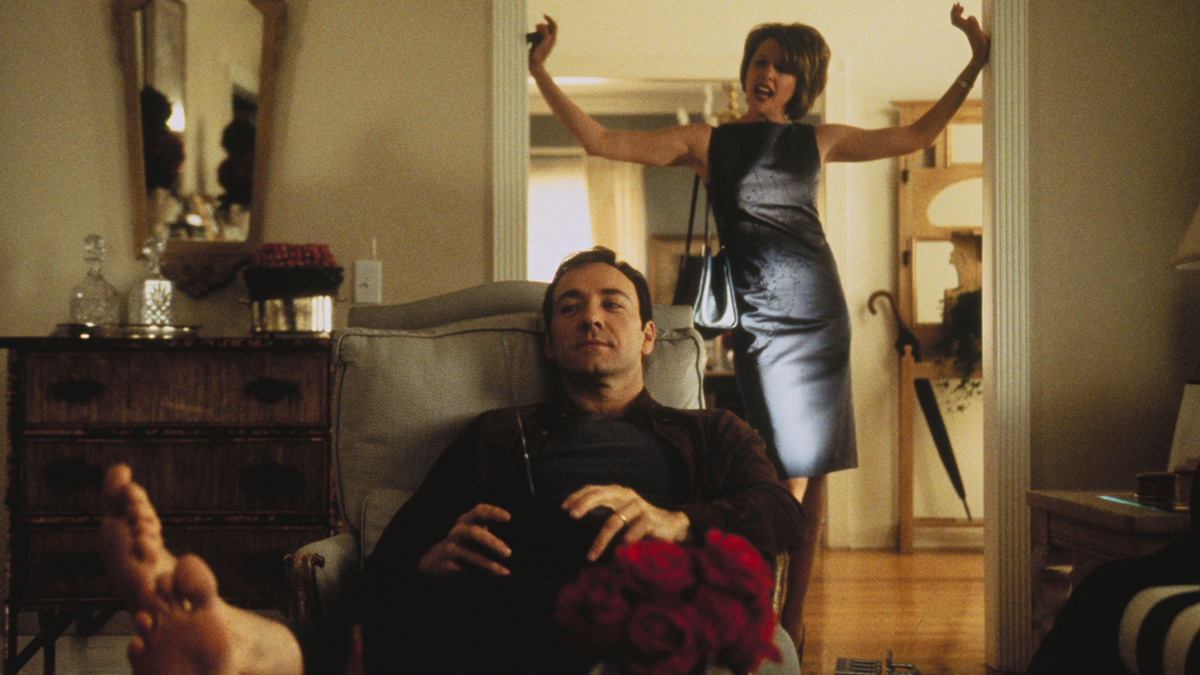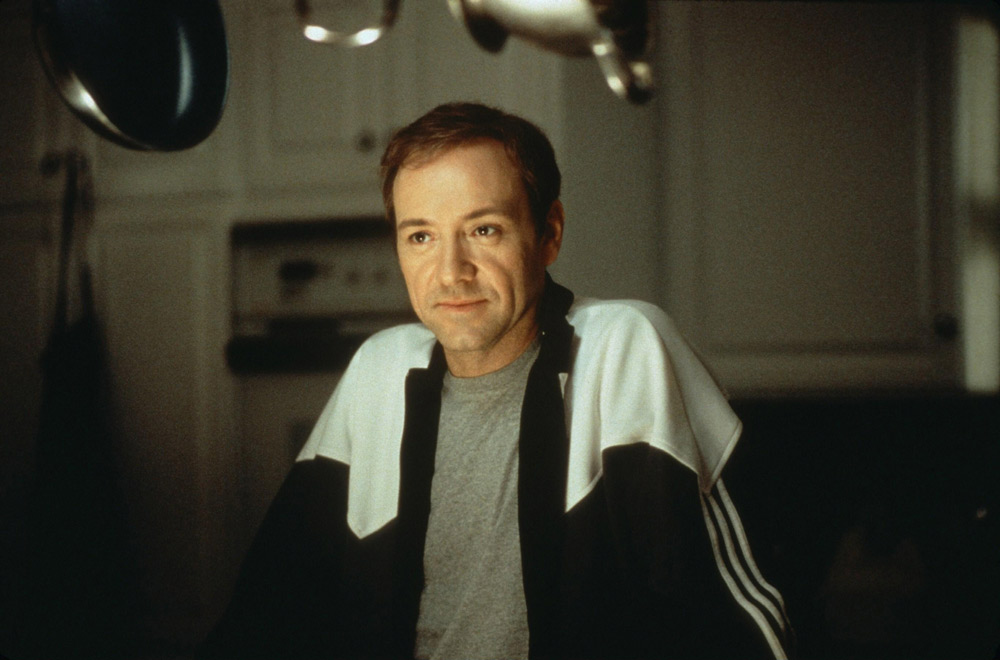
(c) Photofest / Getty Images
``American Beauty'' An absurd home drama that erases the definition of ``normal.''
2019.11.12
Sam Mendes, a theater veteran, creates a sense of “physical” distance.
Are you familiar with the theatrical term "fourth wall"? It refers to the ``invisible wall'' that exists between the audience and the stage, and although the time and space that the audience and performers actually spend are connected, the ``wall'' separates fiction from reality. , that is. In the movie, `` Deadpool '' (2016) became a hot topic for talking to the audience beyond the fourth wall.
“Deadpool” preview
Director Mendez further strengthened this "fourth wall," and while making frequent use of stage-like compositions such as "the performers facing the camera" and "the 'thing' happening" in the center of the screen, he also The world in the play is isolated. By showing the world captured by the camera as a "box," the sense of physical distance seems to be interwoven with the subtext.
This kind of consciousness can be sensed from the opening shot of the houses looking at them from the sky. This composition is not uncommon now that drone photography has become possible, but what is noteworthy is the line that is combined with this image. Lester's monologue, "This is the town I live in. This is my street. This is my life," seems like he's breaking the fourth wall and talking to the audience, but it's actually a complaint that doesn't get anywhere. The story is designed to emphasize the separation between the audience and the story. What we, the audience, will be doing from now on is just ``observation'' -- and it seems like that Arrival is being conveyed. In fact, there are many "through-the-window" shots throughout the play, giving a strong impression of the audience's position.
Afterwards, please pay attention to the scene where Lester receives a summons at work. The shot is shot with a more drawn-out composition than necessary, and Lester seems to be left out in space. Next, in a production that shows a ``happy past'' with photos of the daughter's growth and connects it with a meal scene that shows the cold relationship between the family in the present, ``the past brought us close, and the present is far away.'' ”. Even in the important early scene where Lester falls in love with Angela, a cut is inserted. In the scene where Ricky (Wes Bentley) first appears, there is a theatrical depiction in which he is running the camera in the dark and then turns on the light himself to reveal himself. All these scenes are fixed in place with no horizontal or vertical movement of the camera.

"American Beauty" (c)Photofest / Getty Images
The major difference between theater and movies is distance. The unique advantage of film is that by freely changing the distance between the camera and the subject, he can manipulate the audience's perception and create empathy, but director Mendez maintains an unnatural distance at key points. Composing the screen with physical and physical sensations.
Incidentally, this stage-like production is also evident in the dialogue scene between Bond and Silva in Skyfall . The essence of theater can be seen throughout, such as in the composition of this part and the way the distance is maintained. It's fun to pay attention to these quirks when viewing.
In addition to the sense of distance, director Mendes also constructed this film using three different images. These are ``images from a video camera,'' ``reality,'' and ``delusions.'' In order to enhance individual contrasts, the video camera images are grainy, the real scenes that make up most of the story are presented in a formal manner, and the delusional scenes create a gorgeous, slow-paced world. The establishment of these clear tones, the methodology of having multiple independent color scenes rather than gradations occurring within scenes, is also very theatrical.
``American Beauty'' actively incorporates improvisation, and in many scenes, such as the scene where Lester throws asparagus against the wall, you can see the ``real'' actors. These are also part of Mendez's theatrical approach.
Director Mendes was not satisfied with the content of the first three days of filming and negotiated with the studio to reshoot the film. This is an episode that shows the difficulty of transitioning from theater to film, but it can also be said to be proof that director Mendes advocated a style of ``elaboration'' similar to theater.

